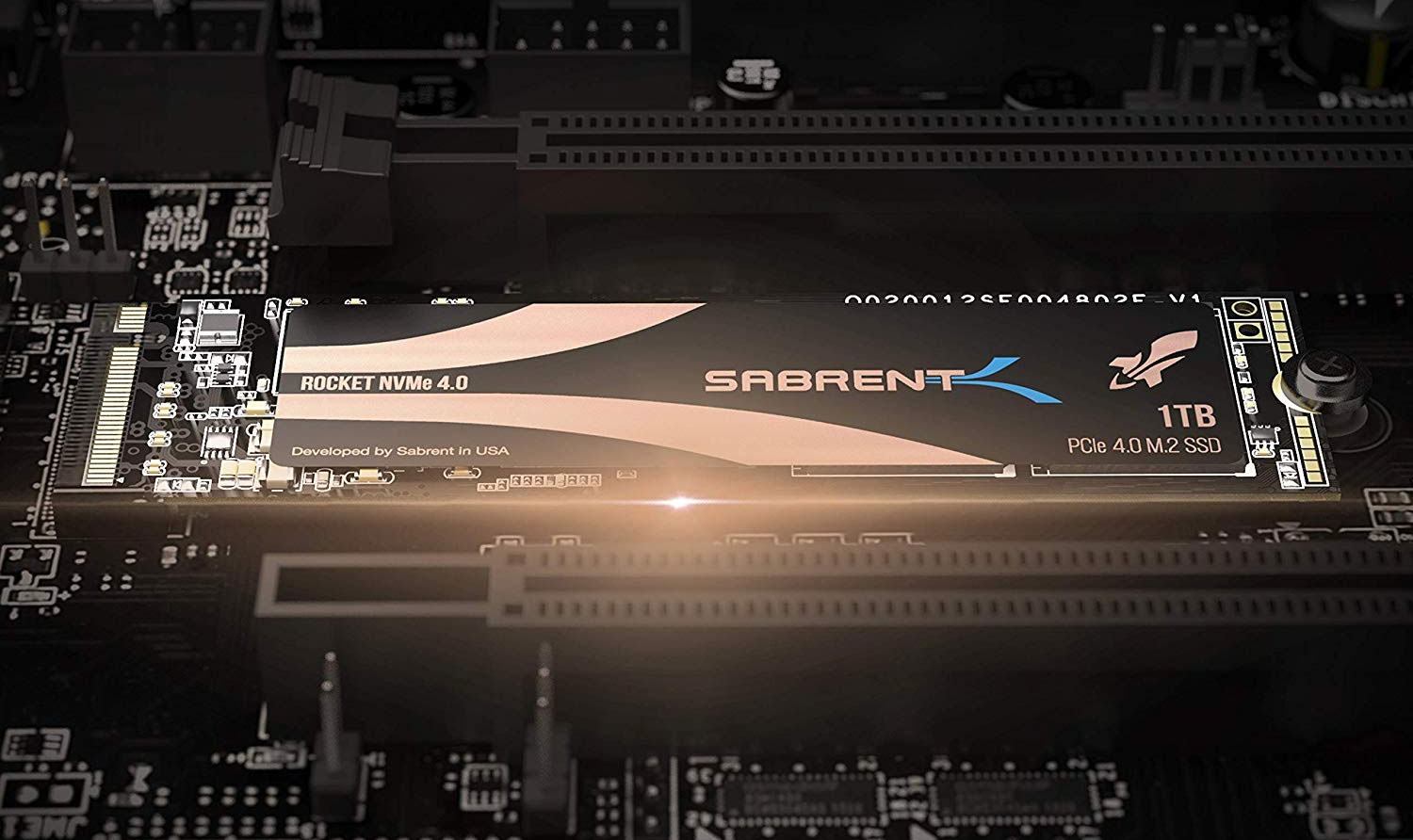Don’t forget the heatsink for your crazy-fast PCIe 4.0 SSD
Faster PCIe 4.0 SSDs are starting to arrive, but without a heatsink, you may never hit top speed.

A new listing on Amazon for a pair of Sabrent 1TB and 2TB Rocket NVMe SSDs with PCI Express 4.0 support underscores how important cooling will be to achieve (and maintain) crazy-fast file transfers. In this case, we are talking about a rated sequential read speed of up to 5,000MB/s, an obvious bid for the best NVMe SSD crown.
Sabrent states in no uncertain terms that "a heatsink is required to dissipate the heat generated by the drives' extreme speed levels to avoid thermal throttling and maximize performance." That is an important disclaimer, because both capacities can be purchased with or without a heatsink.
Here's how pricing breaks down:
- Sabrent 2TB Rocket PCIe 4.0 SSD w/ Heatsink—$449.99, Amazon
- Sabrent 2TB Rocket PCIe 4.0 SSD—$429.99, Amazon
- Sabrent 1TB Rocket PCIe 4.0 SSD—$249.99, Amazon
- Sabrent 1TB Rocket PCie 4.0 SSD—$229.99, Amazon
In both cases, there is a $20 price difference between having and not having a heatsink. With the heatsink included, pricing is the same as Corsair's MP600, which are only sold with a heatsink.
There's a bit to process here, so let's start with PCIe 4.0. It is the latest available version of the PCIe standard (as it pertains to shipping products), and it doubles the bandwidth compared to PCIe 3.0, which is likely what you have now if you own a relatively modern PC.
On the platform side, only AMD has announced consumer support for PCIe 4.0 so far, starting with the upcoming crop of X570 motherboards paired with a third-generation Ryzen processor. Those will be showing up next week. In the meantime, several companies have announced new and faster PCIe 4.0 NVMe SSDs. These new drives push read speeds from a previous high of around 3,500-3,800MB/s to 5,000MB/s.
It is a significant speed bump, even if it does not mean a whole lot for gaming. From a bang/buck perspective, the best SSD for gaming is still in the realm of SATA models that top out at around 550-580MB/s. There are other scenarios where the added speed could be of benefit, though, and so far pricing is not egregious (compared to high performance PCIe 3.0 NVMe SSDs).
The biggest gaming news, reviews and hardware deals
Keep up to date with the most important stories and the best deals, as picked by the PC Gamer team.
All that said, you'll need a platform that supports PCIe 4.0, the right SSD, and adequate cooling. We have not had a chance to test any PCIe 4.0 SSDs yet, but our assumption is that a meaty heatsink and good airflow will both be requisites to achieving top performance. Keep that in mind when you see these next-gen drives offered without a heatsink.
Paul has been playing PC games and raking his knuckles on computer hardware since the Commodore 64. He does not have any tattoos, but thinks it would be cool to get one that reads LOAD"*",8,1. In his off time, he rides motorcycles and wrestles alligators (only one of those is true).


